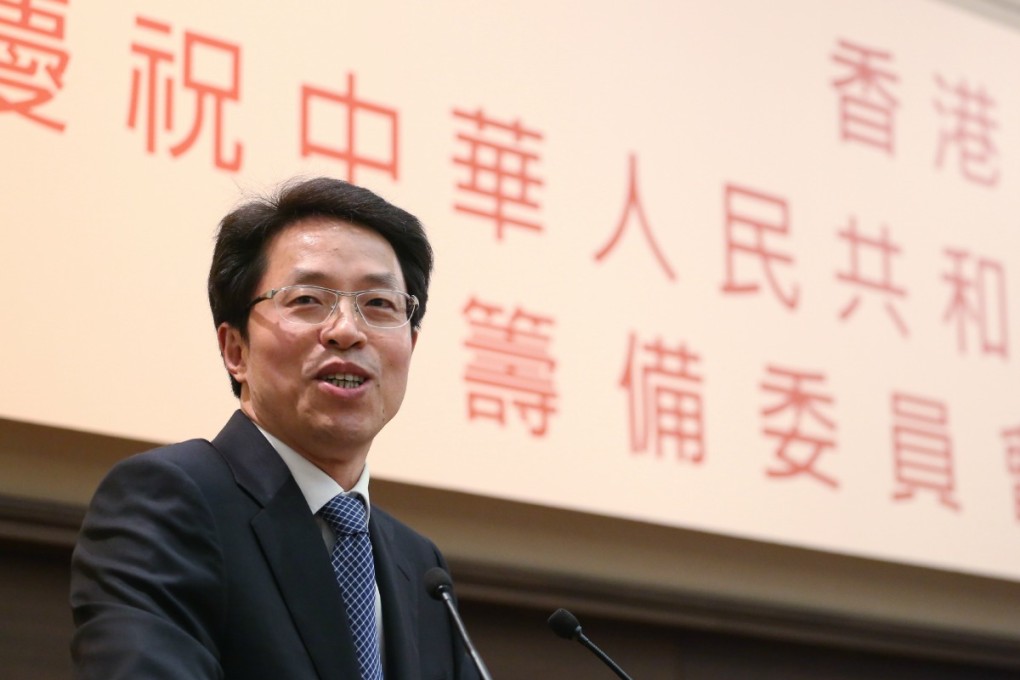New | Liaison office chief Zhang Xiaoming to discuss political reform with pan-democrats
First meeting with Democrats on Friday; NPC delegate Bernard Chan expects Beijing to set high bar for 2017 nomination

The government has confirmed that liaison office director Zhang Xiaoming will meet pan-democrat lawmakers in groups to discuss political reform.
The four meetings will be chaired by Chief Secretary Carrie Lam Cheng Yuet-ngor and will begin on Friday. Secretary for Justice Rimsky Yuen Kwok-keung and Secretary for Constitutional Affairs Raymond Tam Chi-yuen will also attend.
The news came on Tuesday as Bernard Chan, an executive councillor and delegate to the National People’s Congress (NPC), said he expects Beijing to set down a requirement later this month that hopefuls for the chief executive election must obtain support from at least half of the nominating committee to officially become candidates.
Friday’s meeting with Democratic Party lawmakers will be followed by separate meetings with legislators from the Civic Party, Labour Party and Association for Democracy and People’s Livelihood, as well as other independent pan-democratic lawmakers.
The Civic Party’s Alan Leong Kah-kit said that during the meeting he would convey Hongkongers’ view that the reform proposal should not impose unreasonable limitations that screen out contenders with different political views to Beijing’s.
The meetings come weeks before the Standing Committee of the NPC is expected to give Hong Kong the green light for reform at the end of this month, while setting a framework for a second round of public consultation later this year.